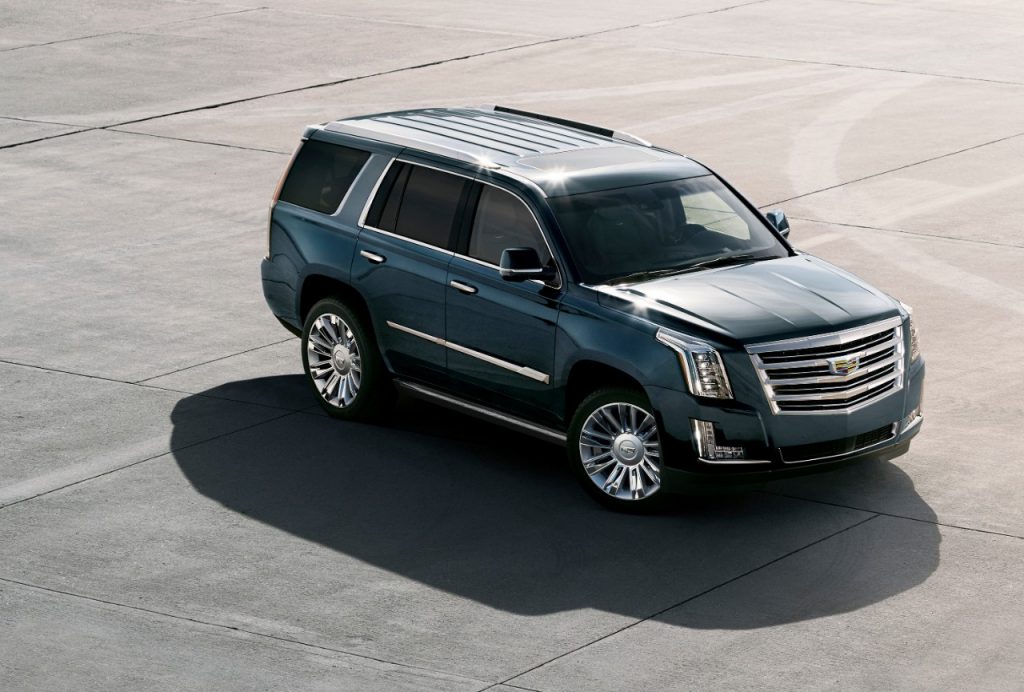(iSeeCars) — Inventor Rudolph Diesel built his first successful diesel engine in 1897, so the technology behind diesel has been proven for well over a century. The first passenger vehicle with a diesel engine was introduced by Mercedes-Benz in 1936, and continuous improvements have been made ever since.
In a nutshell, the difference between a diesel engine and a gasoline-powered engine is that in a gas engine, fuel and air is mixed inside a combustion chamber, and ignited by a spark plug. Modern diesel powertrains compress the air first, which causes heat, and when the fuel is added, combustion happens without the use of a spark plug.
Diesel engines are typically heavier and more robust than gas engines. They are exceptionally good for maximum towing capacity, which is why semi trucks use diesel engines. While they may have less horsepower than gas engines, diesels have more lb-ft of torque, which is a measure of pulling power and is reflected in their superior towing capacity. Torque also plays a role in off-road adventures, assisting many of today’s full-size SUVs, pickup trucks, and crossovers when combined with either four-wheel drive or all-wheel drive.
Diesel vehicles are also generally more fuel efficient than their gasoline counterparts, though gas engines are creeping up on diesels, especially hybrid and plug-in hybrid models. A well-cared-for diesel engine usually outlasts a comparable gasoline engine in longevity. Diesel-powered vehicles are frequently more expensive than the gasoline equivalent, and diesel fuel, once much cheaper per gallon than gas, is often comparable in price.
It must be noted diesel engine options aren’t as common as they used to be, in part because of the bad publicity generated by various “Dieselgate” headlines, most notably various Volkswagens that were proven to have cheated the EPA emissions certification system.
The iSeeCars Quality Score is based on long-term reliability, value retention and safety ratings from the National Highway Traffic Safety Administration (NHTSA) and the Insurance Institute for Highway Safety (IIHS).
Best Diesel SUVs
Topping our list of best diesel SUVs are two Jeep products, the 3.0-liter turbodiesel Wrangler Unlimited, with a score of 8.8, followed by the eco diesel version of the Jeep Grand Cherokee , with a score of 8.3. Both use the Italian-built turbo diesel engine combined with an eight-speed automatic transmission. Used Grand Cherokee diesels often command a premium in resale value.
Also with an 8.3 score is the Mazda CX-5 with the diesel option. Mazda promised a diesel for the U.S. market for years before the CX-5 finally arrived for the 2019 model year as the Skyactiv-D, a 2.2-liter turbocharged four-cylinder mated to a six-speed automatic transmission and featuring standard all-wheel drive (AWD).
| Best Diesel SUVs | ||||||
| Rank | Vehicle | iSeeCars Quality Score | Combined MPG | Max Horsepower | Max Torque | Towing Capacity |
| 1 | Jeep Wrangler Unlimited | 8.8 | 29 | 260 | 442 | 3500 |
| 2 | Jeep Grand Cherokee | 8.3 | 24 | 240 | 420 | 7400 |
| 3 | Mazda CX-5 | 8.3 | 28 | 168 | 290 | 3500 |
| 4 | Chevrolet Tahoe | 8.2 | 24 | 277 | 460 | 8200 |
| 5 | GMC Yukon | 8.1 | 23 | 277 | 460 | 8200 |
| 6 | Chevrolet Suburban | 8.0 | 23 | 277 | 460 | 8000 |
| 7 | GMC Terrain | 8.0 | 32 | 137 | 240 | 1500 |
| 8 | GMC Yukon XL | 7.9 | 23 | 277 | 460 | 8100 |
| 9 | Chevrolet Equinox | 7.8 | 32 | 137 | 240 | 1500 |
Best Luxury Diesel SUVs

The BMW X5 with the diesel package comes in third place with a rating of 8.0. It has a 3.0-liter turbocharged six-cylinder engine and an eight-speed automatic transmission.
Fourth is the Land Rover Range Rover Sport, with a score of 8.0. Like so many other diesel-powered SUVs, the Rover Sport diesel is an optional 3.0-liter turbocharged six-cylinder, with an eight-speed automatic transmission.
| Best Luxury Diesel SUVs | ||||||
| Rank | Vehicle | iSeeCars Quality Score | Combined MPG | Max Horsepower | Max Torque | Towing Capacity |
| 1 | Cadillac Escalade | 8.3 | 23 | 277 | 460 | 8000 |
| 2 | Cadillac Escalade ESV | 8.0 | 23 | 277 | 460 | 8000 |
| 3 | BMW X5 | 8.0 | 25 | 255 | 413 | 5952 |
| 4 | Land Rover Range Rover Sport | 8.0 | 25 | 254 | 440 | 7716 |
| 5 | Land Rover Discovery | 8.0 | 23 | 254 | 443 | 7716 |
| 6 | Land Rover Range Rover | 7.8 | 24 | 557 | 553 | 7716 |
| 7 | Jaguar F-PACE | 6.7 | 29 | 180 | 318 | 5291 |
| 8 | Land Rover Range Rover Velar | 6.7 | 28 | 180 | 318 | 5291 |
